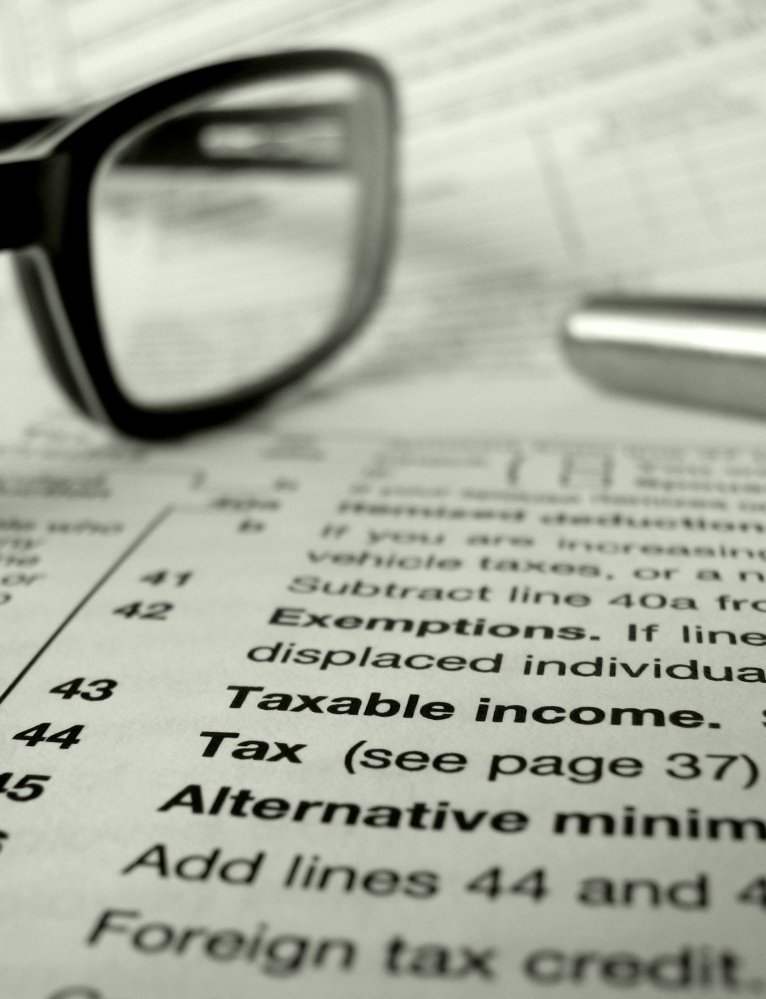Here in Maine, the economy can be as challenging as our winters. Every year, families across Maine batten down hatches, stack firewood, fill oil tanks, seal drafty windows and prepare to ride out the inevitable winter storms. Weathering the twists and turns in our economy is much the same.
We never know when the next storm will hit, whether that’s a medical crisis, a job loss, or an unexpected car or home repair. Whatever the reason, when that moment hits, too many families in Maine are ill-prepared.
Thousands of those same families work hard each day, many at multiple jobs, yet they still live paycheck to paycheck, with little or no savings to help them weather the next storm. In fact, the financial position of Maine residents is more precarious than that of folks in many neighboring states and across the country.
PUTTING CASH IN POCKETS
Maine’s per capita income is the lowest in New England. More than one in five workers have jobs that pay wages equivalent to the poverty threshold for a family of four, and more than half have poor credit. In addition, nearly half of Maine households have little to no liquid assets – cash they can use for an emergency. However, just as Mainers are resourceful when it comes to our harsh and erratic weather, many are taking advantage of efforts to help them become more financially sound.
Many taxpayers, for example, are benefiting from crucial tax incentives such as the Earned Income Tax Credit. The EITC, signed into law by President Ford and later expanded by Presidents Reagan and Clinton, is a tax credit for low-income and moderate-income people that promotes and rewards work by offsetting federal and state payroll and income taxes. Its value varies according to a person’s income, marital status and number of children.
At the federal level, the EITC is “refundable,” so that if it exceeds a worker’s tax obligation, the Internal Revenue Service will refund the difference. Maine has a state EITC that is not refundable and worth only 5 percent of the federal. Research has singled out EITC as the nation’s most effective tool for combating childhood poverty.
Across Maine, United Ways, community groups, businesses, banks and hundreds of everyday volunteers, through the Creating Assets, Savings and Hope Programs (better known as the CA$H Coalitions), are providing free tax preparation services that help more Mainers claim the EITC and other tax credits.
Yet the EITC still is not being used to its full potential, as over $30 million in credits were left on the table in 2013 – something that United Ways, Key Bank and other longtime CA$H partners are working hard to help change.
Although the EITC and other tax credits are critical for putting more cash in people’s pockets, we also need to provide folks with greater opportunities and incentives to save and build assets.
SPREADING THE WORD
This year, with support from the John T. Gorman Foundation, Maine’s CA$H Coalitions have teamed up with Women, Work and Community – a statewide nonprofit dedicated to increasing Mainers’ economic security through employment and savings – to offer an expanded array of savings-building opportunities at the coalitions’ tax-prep sites and other venues throughout the year.
These include, for example, college-savings programs (such as the Harold Alfond College Challenge) and Family Development Accounts that match savings four-to-one for families who want to save for an education, homeownership, or a new business. People also can take financial education classes, learn how to reduce debt, and get advice on career counseling and retirement planning.
Similarly, Unum, a provider of employee benefits that help people maintain financial stability during life’s ups and downs, is dedicating staff time to work with community partners and increase access to financial literacy.
Spread the word to employees, family members and neighbors to use the CA$H Coalitions’ free tax prep services, and urge them to take advantage of the EITC and the expanded array of tools to build savings and assets. Let’s ensure that even more Mainers have the means to weather the next financial storm and the tools to save and build toward a better future for themselves and their families.
Copy the Story LinkSend questions/comments to the editors.



Success. Please wait for the page to reload. If the page does not reload within 5 seconds, please refresh the page.
Enter your email and password to access comments.
Hi, to comment on stories you must . This profile is in addition to your subscription and website login.
Already have a commenting profile? .
Invalid username/password.
Please check your email to confirm and complete your registration.
Only subscribers are eligible to post comments. Please subscribe or login first for digital access. Here’s why.
Use the form below to reset your password. When you've submitted your account email, we will send an email with a reset code.